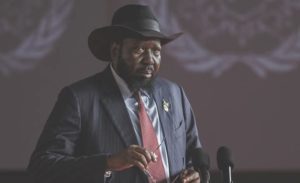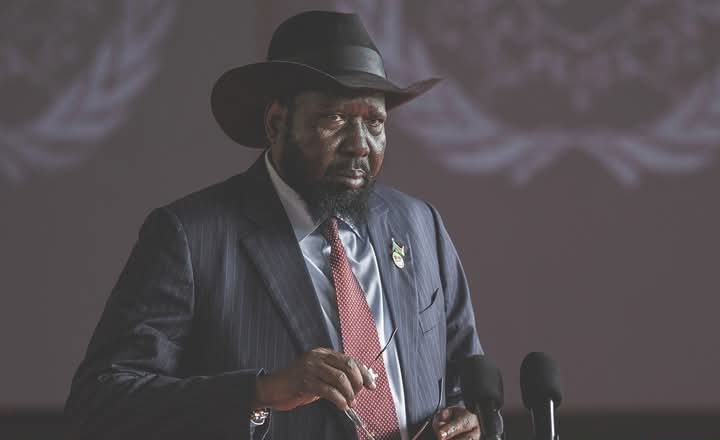
By Adeyemi Adekunle
When the sun set over Juba, South Sudan, on Thursday night, darkness brought chaos and heartbreak. A cascade of grief and anger swept across neighborhoods after news emerged of alleged killings of South Sudanese citizens by Sudan’s military and allied groups in Wad Madani, Sudan. What started as simmering outrage erupted into deadly riots, forcing authorities to impose a nationwide curfew to prevent further bloodshed.
The scars of conflict are deeply etched into the history of South Sudan, the world’s youngest nation. With memories of their own brutal civil war still fresh, South Sudanese citizens saw in the alleged killings a painful reflection of their own struggles for dignity and security.
That reflection, however, sparked flames of fury. Reports of South Sudanese victims targeted in ethnically-motivated violence in Sudan’s El Gezira region fueled a sense of betrayal and grief. In Juba’s bustling streets, young men turned their sorrow outward, attacking Sudanese traders and businesses in a tragic expression of frustration. By dawn, the streets bore witness to lives shattered—three dead, seven injured, and a community fractured.
One survivor of the riots, Michael Atem, a resident of Juba’s Kator suburb, described a night of terror. “We could hear the shouting, the breaking of doors, and then the shots,” he said. “They came with machetes and looted everything. It didn’t matter if the people they attacked were innocent.” Atem had sheltered with his family in a nearby church, fearing for their lives.
For some, the violence brought tragic irony. Many Sudanese traders in Juba fled to South Sudan seeking refuge from their country’s ongoing civil war between the Sudanese military and the paramilitary Rapid Support Forces (RSF). Now, their fragile peace was shattered as they became targets in a city where they had sought safety.
In Aweil, a city near the Sudanese border, tensions also flared. By the time police intervened, three houses owned by Sudanese families had been burned to the ground. The images of smoke rising from Aweil were a grim testament to the escalating crisis.
Abraham Peter Manyuat, South Sudan’s police chief, took to the airwaves on Friday. Announcing a nationwide curfew, he spoke with the weight of a nation teetering on the brink of widespread unrest. “The curfew will last from 6 p.m. to 6 a.m. daily, and the police will not tolerate any violations,” Manyuat declared. His words, however, were as much a call for control as they were an admission of how fragile the situation had become.
Efforts to stabilize the capital were evident on Friday morning. Streets once teeming with vendors and market-goers stood eerily quiet. Police and security forces roamed Juba’s suburbs, evacuating Sudanese residents to safer areas while local shops remained closed to avoid further attacks. For many, this landscape of tension underscored the delicate balance between vengeance and restraint.
In a show of statesmanship, President Salva Kiir Mayardit urged his people to temper their rage. “It is crucial that we do not allow anger to cloud our judgment or turn against Sudanese traders and refugees currently residing in our country,” Kiir said. His office’s statement called for solidarity, reminding South Sudanese that Sudan’s citizens were also suffering under the burden of war.
The roots of this turmoil lie in Sudan’s brutal conflict, which erupted nearly two years ago. Reports of ethnically targeted violence in El Gezira earlier this week prompted global condemnation. Human rights groups accused Sudan’s military and its allies of targeting civilians suspected of supporting the RSF. While the Sudanese army labeled the atrocities as “individual violations,” the wounds they left were collective—and they traveled across borders.
For South Sudan’s foreign ministry, the killings of their citizens were a matter of deep national concern. The ministry summoned Sudan’s ambassador earlier this week, seeking answers and accountability. But for many on Juba’s streets, diplomacy wasn’t enough. The tragedy reignited raw emotions among South Sudanese citizens, who understand all too well the weight of displacement and violence.
Humanitarian organizations are bracing for the aftermath. Both Sudan and South Sudan host millions of displaced people, their movements dictated by a brutal history of civil war and survival. UN agencies working in the region expressed alarm at the situation, warning of the risks posed to already vulnerable populations.
Peace, fragile as it is in South Sudan, now faces a crucial test. Community leaders and elders have joined calls for calm, urging citizens not to jeopardize the hard-won gains of nation-building by succumbing to divisions. Reverend Emmanuel Bol, a prominent voice for reconciliation in Juba, addressed a gathering of mourners and activists. “Hatred cannot build our future,” he told them. “Let us not let the actions of a few in Sudan create bitterness in our home.”
The broader implications of the riots are not lost on observers. With both Sudan and South Sudan embroiled in internal struggles for stability, the latest unrest underscores the intricate link between their fates. Analysts fear that unresolved grievances and unchecked retaliatory violence could spark further unrest, undoing years of peacebuilding efforts.
Yet amid the tension, there are flickers of hope. Citizens like Atem, who suffered through the night’s violence, have pledged to channel their pain into advocacy for peace. “We must learn to forgive,” he said. “Not just for them, but for us—for South Sudan.”
As dusk falls over Juba under the shadow of curfew, South Sudan faces the daunting task of healing from a wound inflicted by distant hands. It is a challenge that demands resilience, unity, and the wisdom to rise above division. For now, the curfew is a pause, a time for reflection and renewal. What the nation does next will shape not just its own destiny, but the fragile future of a region bound by shared struggles and hopes.




